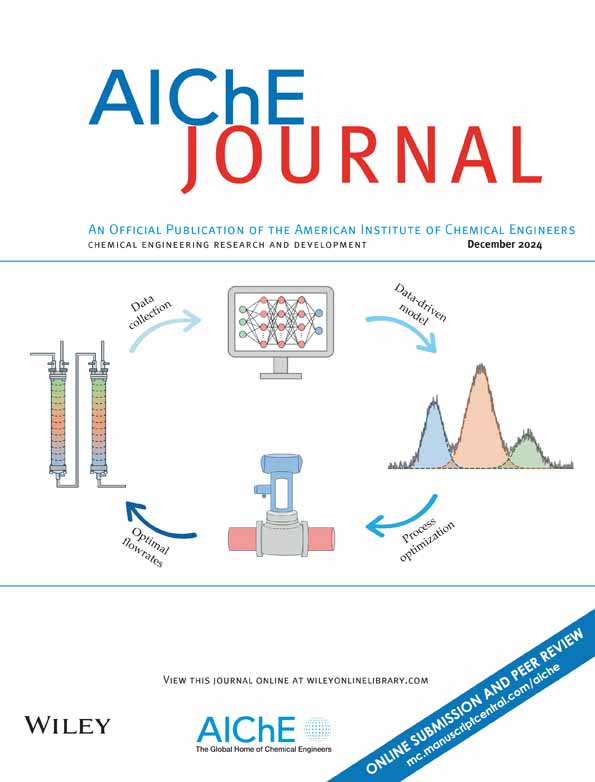Unlocking high stability and selectivity in reverse water–gas shift over a synergistic MoCO catalyst
IF 4
3区 工程技术
Q2 ENGINEERING, CHEMICAL
引用次数: 0
Abstract
The reverse water‐gas shift (RWGS) reaction is vital for CO在协同MoCO催化剂上解锁高稳定性和选择性的逆向水气转换
逆水气转换(RWGS)反应对二氧化碳的利用和碳循环至关重要,但由于其吸热性质和甲烷化竞争,催化剂的稳定性和CO选择性仍然是主要挑战。本研究通过一步程控温度煅烧,原位构建了具有碳化物-氧化物相互作用的协同α - Mo2C:MoO2 (MoCO)催化剂,实现了高分散和协同作用。在工业空速(8400 mL·gcat−1·h−1)H2/CO2 = 3:1条件下,MoCO‐3.5 (Mo/C = 1:3.5)达到了接近平衡的CO2转化率(500℃时为50.56%,800℃时为74.71%)和99.6%的CO选择性,在120 h内保持稳定而不结焦。机理研究揭示了氢辅助甲酸途径,弱CO吸附使快速脱附,有效抑制甲烷化。这种协同驱动的结构调控策略为设计高稳定性和CO选择性的非贵金属RWGS催化剂提供了一种有前途的策略。
本文章由计算机程序翻译,如有差异,请以英文原文为准。
求助全文
约1分钟内获得全文
求助全文
来源期刊

AIChE Journal
工程技术-工程:化工
CiteScore
7.10
自引率
10.80%
发文量
411
审稿时长
3.6 months
期刊介绍:
The AIChE Journal is the premier research monthly in chemical engineering and related fields. This peer-reviewed and broad-based journal reports on the most important and latest technological advances in core areas of chemical engineering as well as in other relevant engineering disciplines. To keep abreast with the progressive outlook of the profession, the Journal has been expanding the scope of its editorial contents to include such fast developing areas as biotechnology, electrochemical engineering, and environmental engineering.
The AIChE Journal is indeed the global communications vehicle for the world-renowned researchers to exchange top-notch research findings with one another. Subscribing to the AIChE Journal is like having immediate access to nine topical journals in the field.
Articles are categorized according to the following topical areas:
Biomolecular Engineering, Bioengineering, Biochemicals, Biofuels, and Food
Inorganic Materials: Synthesis and Processing
Particle Technology and Fluidization
Process Systems Engineering
Reaction Engineering, Kinetics and Catalysis
Separations: Materials, Devices and Processes
Soft Materials: Synthesis, Processing and Products
Thermodynamics and Molecular-Scale Phenomena
Transport Phenomena and Fluid Mechanics.
 求助内容:
求助内容: 应助结果提醒方式:
应助结果提醒方式:


